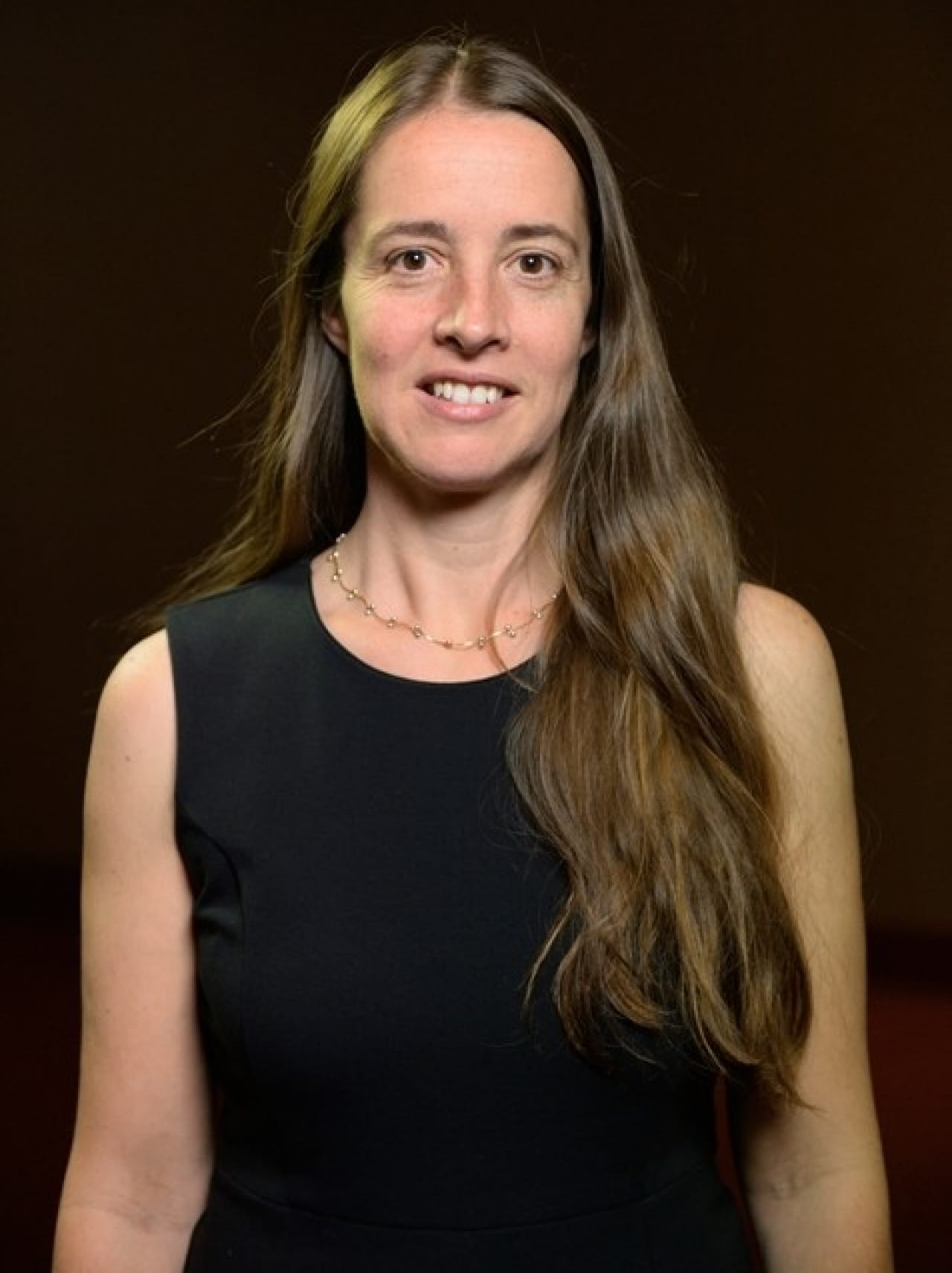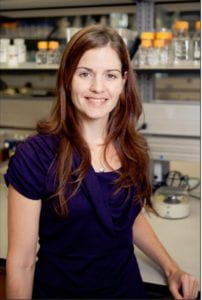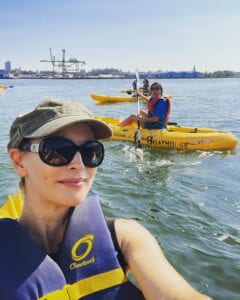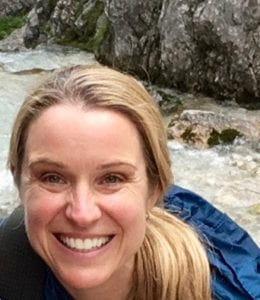Anne Rademacher
Anne Rademacher is an urban ecologist and ethnographer. Trained in environmental studies and anthropology, her early research focused on the cultural politics of river restoration in Nepal’s capital city, published as Reigning the River: Urban Ecologies and Political Transformation in Kathmandu (Duke University Press 2011). Together with K. Sivaramakrishnan, she coordinates the Ecologies of Urbanism network, a group of scholars who address urban ecology questions across Asia. This work has produced two volumes: Ecologies of Urbanism in India: Metropolitan Civility and Sustainability (Hong Kong University/Columbia UP 2013), and Places of Nature in Ecologies of Urbanism (Hong Kong University/Columbia UP 2017).
Anne’s most recent book, Building Green: Environmental Architects and the Struggle for Sustainability in Mumbai (University of California Press 2017), focuses on the social and material practices of urban ecology through the lens of environmental architecture. Her current collaborative, in press for 2021, is a third Ecologies of Urbanism collection, Death and Life of Nature in Asian Cities, with K. Sivaramakrishnan.
Mary Killilea

Mary Killilea is a broadly trained ecologist with research expertise that includes geographic information systems, remote sensing, biogeochemistry, disease ecology, and urban ecology of coastal ecosystems. She has 13 years of experience in undergraduate education as a Clinical Professor at New York University with an appointment that is split between the departments of Biology and Environmental Studies. She is a strong believer that research and teaching are synergistic activities.
Katie Schneider Paolantonio

Katie Schneider Paolantonio is an ecologist and award winning educator, passionate about the integration of research and hands-on learning with students. As a clinical associate professor, Katie has taught six courses within the departments of biology and environmental studies at NYU, including Ecological Field Methods and NYUnderground. Ecological Field Methods is designed for students to gain experience in all parts of the scientific method while investigating applied questions through field study in local habitats. In this course, students wade into urban rivers and ponds, apply analytical techniques to quantify abiotic conditions, and explore urban biodiversity patterns using multiple methods. New York Underground is a course that developed out of Katie’s background as a biospeleologist (a cave biologist). This also integrates lecture material with real world application through field trips and data collection. New York Underground is divided into three primary modules: energy, water (wastewater and potable water), and transportation; each of which is investigated from the perspective of biologists and environmental scientists. Through courses like these, as well as foundational lecture courses like Ecology and Principles of Biology, Katie uses innovative pedagogical methods to encourage students to engage with the world around them.
Karen Holmberg

Karen Holmberg is a volcanologist and archaeologist interested in the creative conveyance of environmental knowledge and narratives of deep time, prehistory, and modern science. She is particularly interested in coastal environments of the past, present, and future. She teaches environmental science at Gallatin and is the Principal Investigator of a transdisciplinary project in Patagonia that focuses on massive coastline transformations due to glacial retreat, sea-level rise, and volcanic eruptions. Her fieldwork near Naples, Italy, combines physics-based predictions of volcanic unrest and the use of the arts to convey scientific conception of risk. She is co-director of the New York Virtual Volcano Observatory on Governors Island. A strong advocate for the public understanding of science, Holmberg recently contributed to Critical Zones, a book (from MIT Press) and exhibition (at ZKM in Germany) on observing the Earth System and collective strategies for thriving across human-imposed borders. She grew up on a back-to-the-land farm on the Chesapeake Bay with 40-acres of oyster grounds in a rural, water-based community and believes in experiential, practice-based learning.


You must be logged in to post a comment.